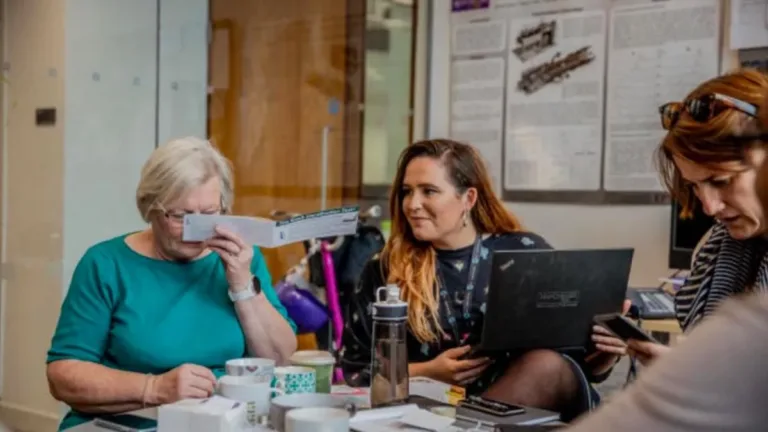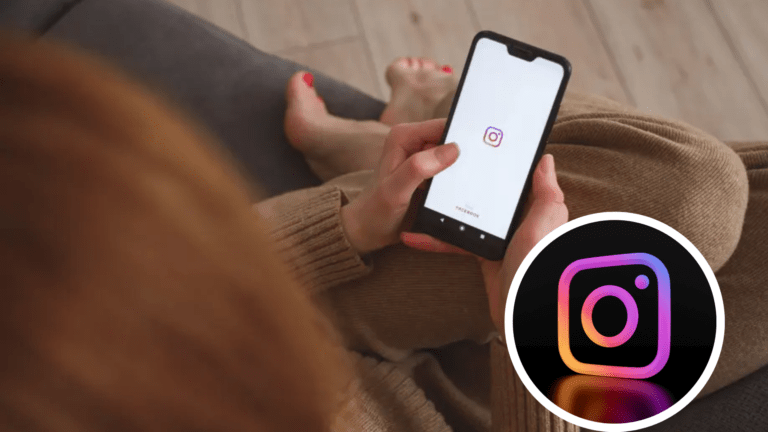🕯️ 6 Night Habits That Quietly Age You (And How to Reverse Them for Youthful Mornings)

“The way you sleep tonight determines how young you’ll look tomorrow.”
It’s easy to think that aging is mostly about genetics—but your nighttime routine plays a silent yet powerful role in how your body, skin, and mind age. These little choices you make before bed might seem harmless, but they can quietly fast-track aging, leading to dull skin, low energy, and poor sleep quality.
Let’s uncover the six sneaky culprits that could be sabotaging your glow—plus what to do instead to wake up looking and feeling younger.
1. 🧵 Sleeping in Synthetic Fabrics: A Heat Trap for Your Skin
What’s the harm?
Synthetic materials like polyester, nylon, and rayon don’t breathe well. These fabrics trap heat, irritate sensitive skin, and interfere with your body’s natural temperature-regulating process during sleep.
When you overheat at night, your body fails to enter deep, restorative phases of sleep. This is when cell turnover, detoxification, and collagen production occur. In short, synthetic fabrics can sabotage your overnight beauty cycle, leaving you groggy and blotchy instead of refreshed and glowing.

The result?
Premature wrinkles, breakouts, disrupted sleep—and even night sweats that worsen hormonal imbalances.
Do this instead:
Choose natural, breathable fabrics like cotton, bamboo, or linen. These materials support the body’s natural cooling system, letting your skin breathe and recover.
🧺 Wash your sheets and sleepwear in fragrance-free detergent to avoid irritating your skin barrier while you sleep.
💡 Bonus tip: Keep your bedroom temperature between 65–68°F for optimal rest and skin repair.
2. 💇♀️ Sleeping with Hair Down: Hidden Strain and Skin Stress
Why it matters:
Your hair touches your face all night. If it’s oily, full of product, or unclean, it transfers bacteria and product residue to your skin, leading to clogged pores and blemishes. Friction from loose hair also weakens your strands and causes split ends, especially if you toss and turn.
Over time, this tension contributes to hairline thinning and more noticeable hair fallout, especially along your temples.

The result?
Greasy pillowcases, stressed skin, thinning hair, and more breakouts.
Try this instead:
Tie your hair back gently using a silk scrunchie or soft braid. Avoid tight ponytails that strain the scalp—go for a loose top knot or braid that prevents tangles and limits breakage.
Pair this with a silk pillowcase to reduce friction on both your face and your strands. Silk is naturally hypoallergenic and minimizes creases, which means fewer pillow lines (and less long-term skin damage).
🧴 Bonus tip: Apply a light leave-in conditioner to keep your hair nourished while you sleep.
3. 🧠 Negative Self-Talk Before Bed: The Collagen Killer
You’ve heard it before:
Stress ages you. But what many don’t realize is that even your inner dialogue—especially at night—can directly affect your skin and health. When you ruminate on negative thoughts or beat yourself up over the day, you create a biochemical stress response.
This raises cortisol levels and keeps your nervous system in a fight-or-flight mode, making it difficult to enter REM sleep. Chronic cortisol spikes degrade collagen and elastin, which leads to sagging skin and slower cellular renewal.

The result?
Dull skin tone, increased inflammation, fine lines, and lower emotional resilience.
What to do instead:
End your day with mental hygiene just like you brush your teeth. Keep a gratitude journal by your bed and jot down 3 wins or positive reflections from the day.
Try Insight Timer’s free sleep meditations, or listen to calming binaural beats. Even repeating affirmations like “I release the day with ease” helps reset your nervous system.
🧘 Bonus idea: Stretch for 5 minutes with deep breathing to activate your parasympathetic system and reduce anxiety-induced skin damage.
4. 🦶 Skipping Foot Care: A Missed Chance for Nervous System Recovery
Here’s something most people miss:
Your feet are full of nerve endings, acupuncture points, and pressure zones connected to key systems in your body. Neglecting them doesn’t just lead to rough heels—it deprives your nervous system of calming signals that encourage sleep and repair.
Cracked feet can even throw off your posture and alignment over time, which subtly increases bodily tension and stress. That low-grade discomfort can interfere with restful sleep and contribute to systemic inflammation.

Neglecting your feet can lead to:
- Interrupted sleep
- Poor lymphatic drainage
- Slower cell regeneration
What to do instead:
Soak your feet in warm water for 10 minutes to soften calluses and improve circulation. After drying, massage them with magnesium lotion, coconut oil, or a nourishing foot balm. Focus on the arches and heel area.
🧼 Use a pumice stone once a week and wear breathable socks to maintain softness.
🧴 Pro tip: Elevate your feet with a pillow to promote circulation and reduce swelling.
5. 👄 Dry Lips or Mouth Breathing: A Dehydration Trap
The hidden impact:
Many people don’t realize that mouth breathing during sleep not only causes dry lips but also lowers oxygen levels in the bloodstream. Less oxygen = slower skin regeneration and duller complexion. This also contributes to dark circles, snoring, and poor focus in the morning.
Waking up with cracked lips, dry mouth, or sore throat is a telltale sign your skin didn’t get the hydration it needed overnight.

What to do instead:
Start by applying a hydrating lip balm with ingredients like hyaluronic acid or shea butter. Then seal with a layer of Vaseline or lanolin to lock in moisture.
Try mouth tape or nasal strips to encourage nose breathing—it may feel odd at first, but it’s a game-changer for sleep quality and skin clarity.
💧 Bonus hydration hack: Keep a humidifier in your room to reduce air dryness and support supple skin.
6. 🛏️ Ignoring Your Sleep Environment: The Aging Accelerator
Is your bedroom aging you?
When your sleep environment is chaotic—full of clutter, poor lighting, bad air, or screen exposure—your body gets confused about whether it’s time to rest or react. That means less melatonin, higher cortisol, and compromised collagen production.
Blue light exposure late at night suppresses melatonin by over 50%, directly impacting your skin’s ability to restore overnight. Even dust mites or mold can cause low-grade inflammation, affecting skin clarity and brain fog.

Common culprits:
- Bright or cool-toned lighting
- Old, unwashed pillows
- Lack of airflow
- Background noise from TVs or phones
Make your room a sanctuary:
- Use a HEPA air filter to reduce allergens and toxins
- Keep your room cool and dark with blackout curtains
- Remove excess clutter, and add calming touches like lavender oil or Himalayan salt lamps
📱 Don’t forget: turn off all screens 30 minutes before bed and charge your phone away from your pillow.
🕯️ Bonus tip: Try a white noise machine or calming sleep playlist to ease your body into deep rest faster.
🔥 What People Are Saying on Social Media
You’re not alone in wanting better sleep and younger-looking skin. Check out how real people are fixing their nighttime habits—and glowing up in the process. These posts are sparking conversations across platforms!
💬 Instagram Post by @wellnesswithemma
“Just switched to bamboo PJs 🌿 after learning synthetic fabrics might be messing with my skin—and wow, what a difference. Cooler nights, clearer skin, and better sleep. Who knew fabric could age you?? #NightRoutineMatters #GlowUp”
💬 TikTok by @SkinCoachRyan
🎥 “Stop sleeping with your hair loose if you care about your hairline! Tie it gently and get on a silk pillowcase ASAP. I promise you, in 3 weeks you’ll see less fallout and fewer breakouts. #HairCare #AntiAgingTips”
💬 Twitter/X by @MindfulSleepDoc
“Mouth breathing ages you. You’re literally starving your cells of oxygen all night long. Switch to nose breathing and track your sleep stats—your skin will thank you. #MouthTape #BiohackYourSleep”
💬 Facebook Post by The Radiant Reset Community
“We’re doing a 7-day bedtime detox challenge! No screens after 9PM, clean sheets, gratitude journaling, and foot massages nightly. Who’s glowing with us? #SleepGlowChallenge #SelfCareRituals”
🌙 Final Thoughts: Youthful Mornings Begin the Night Before
Aging isn’t just about what you eat or apply to your face. It’s in the small nightly rituals that either nourish or neglect your body’s natural repair systems. These six often-overlooked habits may be costing you radiant skin, restorative sleep, and long-term health.
But the good news? Small, mindful changes can reverse the damage. Swapping fabrics, securing your hair, rewiring your mindset, and tending to your environment are all powerful steps toward sustainable, graceful aging.
✨ Let your night become your natural anti-aging ritual. Wake up rested, clear, and glowing—every single day.






